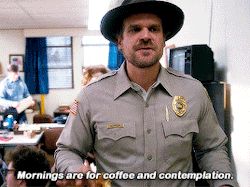
Featured Blog | This community-written post highlights the best of what the game industry has to offer. Read more like it on the Game Developer Blogs or learn how to Submit Your Own Blog Post
Five Productivity Tips for Solo Devs
Working solo is hard. Procrastination, distraction and lack of motivation can destroy a project.
Here are five simple tips to help solo developers stay productive and finish their games.

Working as a solo indie is hard. It’s not a job where you have a boss, telling you what to do and keeping you on track. On most days, you don’t even have co-workers around to call you out for spending an afternoon watching Netflix.
Generally speaking, it’s you and your computer, trying to make something that can take months or years to complete. During this stretch, you need to stay on track and get your best work done every day. It’s easy to get distracted losing days of productivity or to give up on the project entirely.
I’ve been working solo for the better part of the last eight years. While I’ve never been FULLY solo (I’ve always worked with collaborators on music and audio design), I’ve spent most of my indie career doing the programming, design and art on my games, working at home by myself.
This has taught me that working solo has its own unique challenges.
How do you stay focused? Where does the motivation come from? How do I stay on track for a game that won't be done for another two years? Why bother putting on pants? Can I just say in bed all day?
Confession time: Before I went indie, I worked as a Producer in AAA for over a decade. I have a deep passion for project management and productivity. I’m one of those people who reads project management and productivity books for fun. I also freelance as a consultant, doing project management training and project management. I'm a productivity nerd.
My passion for productivity has carried over into my work as a solo developer. I’m constantly asking other developers how they work and evaluating my own processes in an effort to make improvements. The following five tips are the result of eight years work, research and experimentation.
1. Have A Backlog
A backlog, simply put, is a list of work to be done. The most important work is at the top, least important at the bottom.
It’s easy to re-order the list, add and remove work.
A backlog is a to-do list on steroids.
The backlog can be a spreadsheet, or you can use a productivity app (I prefer Pivotal Tracker - free for solo/tiny teams), but the important thing is that you can put your work on the list and that you update it constantly.
 Snapshot of my Backlog on Pivotal Tracker today.
Snapshot of my Backlog on Pivotal Tracker today.
It’s also important to have estimates for your backlog items. I prefer to keep the estimates as small as possible. It feels way better to mark a bunch of things as DONE throughout the day. If I have a huge feature, I’ll break it down into smaller chunks that can be tackled individually.
Once you have a backlog, use it. If you have a cool new idea for the game, don’t stop the work you’re doing right now, instead, put it on the backlog. Feature request from twitter? Put it on the backlog. Find a new bug? put it on the backlog. If priorities change, move the items on the backlog. The backlog is a living thing and should constantly be changing.
If you have problems getting rolling at the start of the day, a good habit is looking at the backlog at the end of each day. Look at the work for tomorrow and let your subconscious bounce it around while you sleep. You'll wake up ready to get started.
The backlog is your roadmap. It tells you where you are, where you’re going and where you’ve been. If you’re always using it, you’ll never get lost.
2. Know Your Best Time
Are you a night-owl or an early riser? Do you come home from your day job completely exhausted and unable to work? Do you have roommates or a family that distract you when they’re around? Do you enter a coma-like state after eating lunch?
Knowing when you produce your best work, is key.
Finding your best time to work takes a lot of experimentation and self-awareness. Once you find it, protect it and do everything you can to get that time every day.

Hopper knows what his mornings are for.
Personally, I do my best work in the morning. I tend to fade around 2:00, but my afternoons can be good, if I can get right back to work after lunch and can carry my momentum through the day. Evening work is rarely productive. I’m easily distracted and have trouble solving complicated problems.
Knowing this, I make the most out of my mornings whenever possible.
Before I went indie, I woke up at 5:00 AM to work on my own projects. I could get two to three hours of work in before I had to leave for my day job. I tried to work in the evenings. I tried repeatedly and failed repeatedly. Once I started on the morning routine, I didn’t miss a day.
Back when the Vancouver Indie House was around, you could see everyone in the house figuring out their own best time and best way to work. Some would gather around the kitchen table and work communally, while others would get up later in the day and work through the night in their room. You could show up at Indie House at almost any time and there’d be somebody working on something.
The nice thing about working during your best time is that you get to relax during the rest of the day. You know that you put your time in and you did good work during your best time.
3. A Clear Singular Goal
One of the best ways to stay focused is to have one single goal for what you need to do that day.
Having a Clear Singular Goal is something that I’ve recently picked up on and the difference has been huge. It’s easily the biggest improvement I’ve made in how I work over the past few years.
Having one goal for the day helps prevent procrastination, helps you finish the work properly and helps prevent distractions as you stay focussed on that one goal.
However tempting it may be to have multiple goals, choose one. It’s your priority. Don’t have two or three goals for the day. Have one goal and when it’s done, you can work on something else.
The goal needs to be achievable and usually it’s the most important item or group of items on your backlog. It might be getting a character walking in a new prototype, or adding another environment tileset to a pixel art game, or capturing footage for a trailer.
The important thing is that it's clear and doable.

Screenshot from Bunker Punks: Remember to stay focused on the One Singular Goal.
4. Creative Inertia
Creative Inertia is real and the concept is simple:
If you’re working every day, it’s easier to keep producing work. If you take time off from a project, it’s harder to pick up that project and continue work on it.

I’d be willing to be that Creative Inertia has resulted in the death of more solo projects than any other factor.
You see this across all creative mediums: DrawEveryDay, AmWriting, DailyPainting. It all says the same thing: The key to staying productive is working on your craft every day.
If time is at a premium (i.e.: you have a day job, family, medical needs, etc), it’s much better to do one hour of work on your game for five days than it is to do five hours of work for one day. This will keep your momentum up and keep the project moving forward.
Remember that Creative Inertia is powerful. Respect it, prepare for it and when you’re dreading opening up your project after being away from it for two weeks, know that this is Creative Inertia messing with you and then go and open that project to spite it.
5. Zero out the Bugs
Nothing slows down a project faster than bugs. They get in the way of implementing new features, they are a distraction to everyone who encounters them and fixing a bug can often expose new bugs. Stop putting it off and fix the bugs. Even the hard ones, and especially the ones that nobody notices but you.
If you see a bug and you’re in the middle of a complicated piece of work, put that bug on the backlog so that you can get to it later (that’s what the backlog is there for.)
The important thing is that you approach your development with a ‘zero bugs’ attitude. Not does it gives you an environment where you can develop without tiptoeing around buggy code, it lets you demo your game at a moments notice. While you’re at it, clear up your console notifications too. Seriously.
 Happiness is an empty debug console
Happiness is an empty debug console
Perhaps most importantly, zeroing out your bugs lets you focus on the work ahead because you have confidence in the foundation you are building upon.
There are five tips here. They are largely independent of each other. I don’t recommend doing all of them at once. Integrate one into your process and then, after you are comfortable, start with another. Doing too many changes at once is a great way to fail at making any changes at all.
I hope these tips will help you stay productive and produce your best work.
If you have additional tips, please share them in the comments below. We’re all just a bunch of developers trying to get better at making games.
Additional Reading:
The War of Art by Steven Pressfield
The One Thing by Gary Keller and Jay Papasan
Grit by Angela Duckworth
Scrum by Jeff Sutherland and J.J. Sutherland
The Little Book of Talent by Daniel Coyle
Read more about:
Featured BlogsAbout the Author(s)
You May Also Like







.jpeg?width=700&auto=webp&quality=80&disable=upscale)








